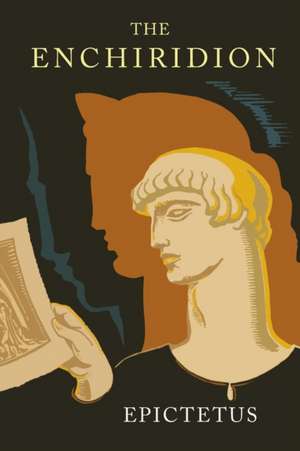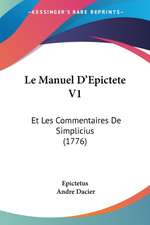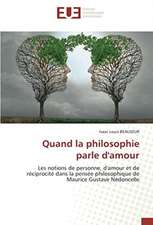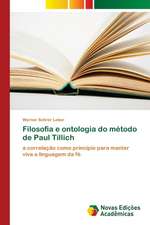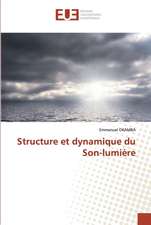Enchiridion
Autor Epictetusen Limba Engleză Paperback – 31 iul 2018
"First say to yourself what you would be; and then do what you have to do." ― Epictetus
"I laugh at those who think they can damage me. They do not know who I am, they do not know what I think, they cannot even touch the things which are really mine and with which I live." ― Epictetus
"No man is free who is not master of himself." ― Epictetus
"Everything has two handles, the one by which it may be borne, the other by which it may not. If your brother acts unjustly towards you, do not take hold of the fact that he acts unjustly; rather take hold of the fact that he is your brother who was nurtured with you." ― Epictetus
Epictetus'Enchiridion (or Manual) was compiled by his pupil Arrian and is intended as a "manual for life", and as such it eschews metaphysics and focus on the practical. It has been one of the most widely read philosophical texts until the 17th century, and has had a place in many libraries, including those of John Harvard and Thomas Jefferson. In a later Christianized form it was used in many monastic orders. The Enchiridion is perhaps the shortest introduction to Stoicism.
Epictetus' works have since antiquity been among the most influential Stoic texts. His ideas are surprisingly fresh: practical and speaking eloquently to the modern reader. A starting point of his philosophy is an understanding of that which is, and that which is not, under our control. However, Epictetus does not advocate a passive acceptance of fate, but advises clear-sightedness and purpose to guide us through life and its inevitable reverses.
Like Socrates, Epictetus wrote nothing. His informal lectures were transcribed by his pupil Arrian. Within fifty years they were widely read, including by the philosopher Emperor Marcus Aurelius.
George Long has also translated The Discourses of Epictetus, The Mediations of Marcus Aurelius and Plutarch's Lives, and written Decline of the Roman Empire.
Epictetus (c.a. CE 5 - CE 135) was born a slave in present day Turkey in the Roman Empire. However, his master allowed him to study Stoic Philosophy, and he became one of the most respected philosophers of his time, being widely read and quoted by subsequent Stoics. He was a powerful speaker who could induce any emotion he wanted in his listener, and many eminent figures, including the Emperor Hadrian, sought his conversation. Despite lameness and persistent ill health, but perhaps due to his simple lifestyle and philosophy, he lived to an age of about 80 which was remarkable at the time.
| Toate formatele și edițiile | Preț | Express |
|---|---|---|
| Paperback (11) | 31.96 lei 6-8 săpt. | |
| www.bnpublishing.com – 12 noi 2018 | 40.10 lei 3-5 săpt. | |
| BOATWHISTLE BOOKS – 15 mai 2024 | 48.81 lei 3-5 săpt. | +8.40 lei 4-10 zile |
| G&D MEDIA – 6 iun 2023 | 66.38 lei 3-5 săpt. | |
| 127 House – oct 2023 | 67.11 lei 3-5 săpt. | |
| 12th Media Services – 10 mar 2018 | 31.96 lei 6-8 săpt. | |
| Chump Change – 4 apr 1890 | 32.34 lei 6-8 săpt. | |
| BENEDICTION CLASSICS – 27 iul 2020 | 37.28 lei 6-8 săpt. | |
| Fili Public – 5 apr 2023 | 38.08 lei 6-8 săpt. | |
| AZILOTH BOOKS – 22 oct 2020 | 42.64 lei 6-8 săpt. | |
| Martino Fine Books – 31 iul 2018 | 69.59 lei 38-44 zile | |
| Antiquarius – 19 oct 2020 | 86.58 lei 38-44 zile | |
| Hardback (4) | 59.72 lei 3-4 săpt. | +23.08 lei 4-10 zile |
| Dover Publications – 15 noi 2023 | 59.72 lei 3-4 săpt. | +23.08 lei 4-10 zile |
| 12th Media Services – 11 mar 2018 | 90.45 lei 6-8 săpt. | |
| BENEDICTION CLASSICS – 26 iul 2020 | 100.47 lei 6-8 săpt. | |
| Antiquarius – 19 oct 2020 | 174.69 lei 38-44 zile |
Preț: 69.59 lei
Nou
Puncte Express: 104
Preț estimativ în valută:
13.32€ • 14.47$ • 11.20£
13.32€ • 14.47$ • 11.20£
Carte tipărită la comandă
Livrare economică 17-23 aprilie
Preluare comenzi: 021 569.72.76
Specificații
ISBN-13: 9781684222438
ISBN-10: 1684222435
Pagini: 40
Dimensiuni: 156 x 234 x 3 mm
Greutate: 0.08 kg
Editura: Martino Fine Books
ISBN-10: 1684222435
Pagini: 40
Dimensiuni: 156 x 234 x 3 mm
Greutate: 0.08 kg
Editura: Martino Fine Books
Descriere
Descriere de la o altă ediție sau format:
The Enchiridion (‘handbook’) of Epictetus is one of the most well-known and best-loved works of ancient Greek literature. Based on the solid theoretical foundation of Stoic thought, this is indeed a highly accessible handbook giving practical advice on how to live a better life. It is as relevant now as ever it was.
The Enchiridion (‘handbook’) of Epictetus is one of the most well-known and best-loved works of ancient Greek literature. Based on the solid theoretical foundation of Stoic thought, this is indeed a highly accessible handbook giving practical advice on how to live a better life. It is as relevant now as ever it was.
Notă biografică
Epictetus (AD 55 - 135) was a Greek speaking Stoic philosopher. He was born a slave at Hierapolis, Phrygia (present day Pamukkale, Turkey), and lived in Rome until his banishment, when he went to Nicopolis in north-western Greece for the rest of his life. His teachings were written down and published by his pupil Arrian in his Discourses. Epictetus taught that philosophy is a way of life and not just a theoretical discipline. To Epictetus, all external events are determined by fate, and are thus beyond our control; we should accept whatever happens calmly and dispassionately. However, individuals are responsible for their own actions, which they can examine and control through rigorous self-discipline.
